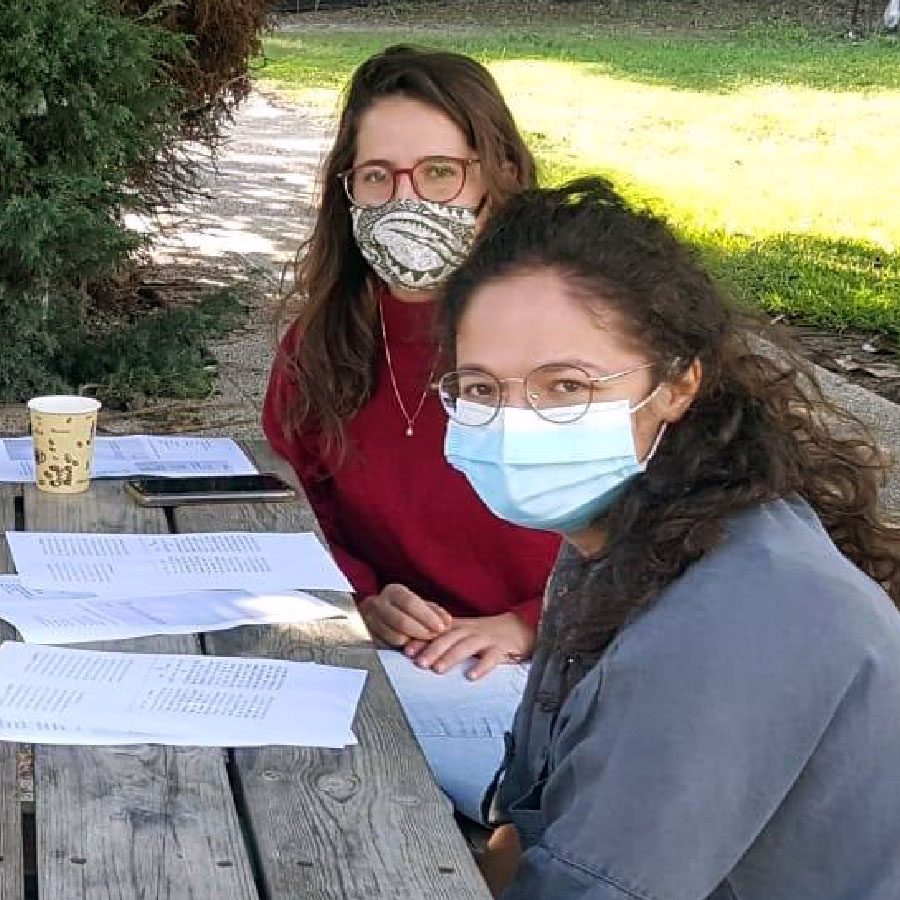
17 Feb Coronavirus, Budget Challenges Can’t Stop The Power of Learning
- Copy Link
Coronavirus, Budget Challenges Can’t Stop The Power of Learning
The Emergency Loan Fund for Nonprofits helped the Elul Beit Midrash “stay afloat” during the early worst days of the coronavirus pandemic in 2020
When the coronavirus pandemic hit Israel in early 2020, businesses big and small were impacted, with nonprofits hit especially hard. Elul Beit Midrash was one such organization whose budget severely suffered.
Founded in 1989, Elul is the first pluralistic Beit Midrash (house of learning) in Israel in which Jewish and Israeli sources are studied and people from different backgrounds and communities meet and together create creative products inspired by the learning experience.
“One of the biggest problems in Israel is that society is very divided. Elul was a pioneer in establishing a Beit Midrash that brings people together to not just learn from texts but also learn to get along with each other, encouraging meaningful discussions and creating relationships based on respect,” explained Guy Gardi, Director of Elul. “Elul was the first to understand the power of learning in a Beit Midrash and make it accessible to a lot of different populations.”
Elul’s activities, ranging from havruta (paired learning) to theater programs, and attracting participants from young students to the elderly, were forced to stop completely or drastically decreased during the coronavirus and subsequent lockdowns in Israel. Before Covid, Elul had more than 20 groups that met in-person to learn together. During the first several months of the pandemic, Elul decreased the number of groups meeting to 10 and switched to a hybrid of small group study (in compliance with the Ministry of Health’s guidelines) and online remote learning via Zoom.
But with an important part of the budget relying on paid fees, which were impacted by the loss of income of many Israelis, as well as government subsidies that stopped when sponsored activities ceased, Elul had to furlough their staff.
Enter the 2020 Emergency Loan Fund for Nonprofits. Launched by The Jewish Agency for Israel and Ogen, an Israeli nonprofit lending provider of affordable credit, the Loan Fund offered provisions for immediate loans at a three percent interest rate, with no requirement for guarantors, along with financial consulting services to help organizations avoid folding. Elul procured a 400,000 NIS loan (about $122,400) that allowed the nonprofit to bring back all of its staff and continue operating.
“The loan was so vital to us; it helped us to breathe, to stay afloat,” said Guy. “Each lockdown, our staff learned how to react and do better. Now Elul has adjusted to a new way of learning, with social distancing, with technology, to continue to provide a place where collaborative learning can take place.”
In fact, during the coronavirus, Elul worked with the Jerusalem Municipality to start creating content for Channel 98, a channel for elderly viewers. More than 20 episodes were filmed and broadcast and episodes were later uploaded to YouTube, with Elul holding Zoom sessions to deeper discuss the figures and texts mentioned.
By January 2021, about 80% of Elul’s activity had resumed, with almost all groups once again meeting and learning together virtually. And since the elderly and increasingly more Israelis have received the Covid vaccine, soon physical Beit Midrash activities can restart as well.
